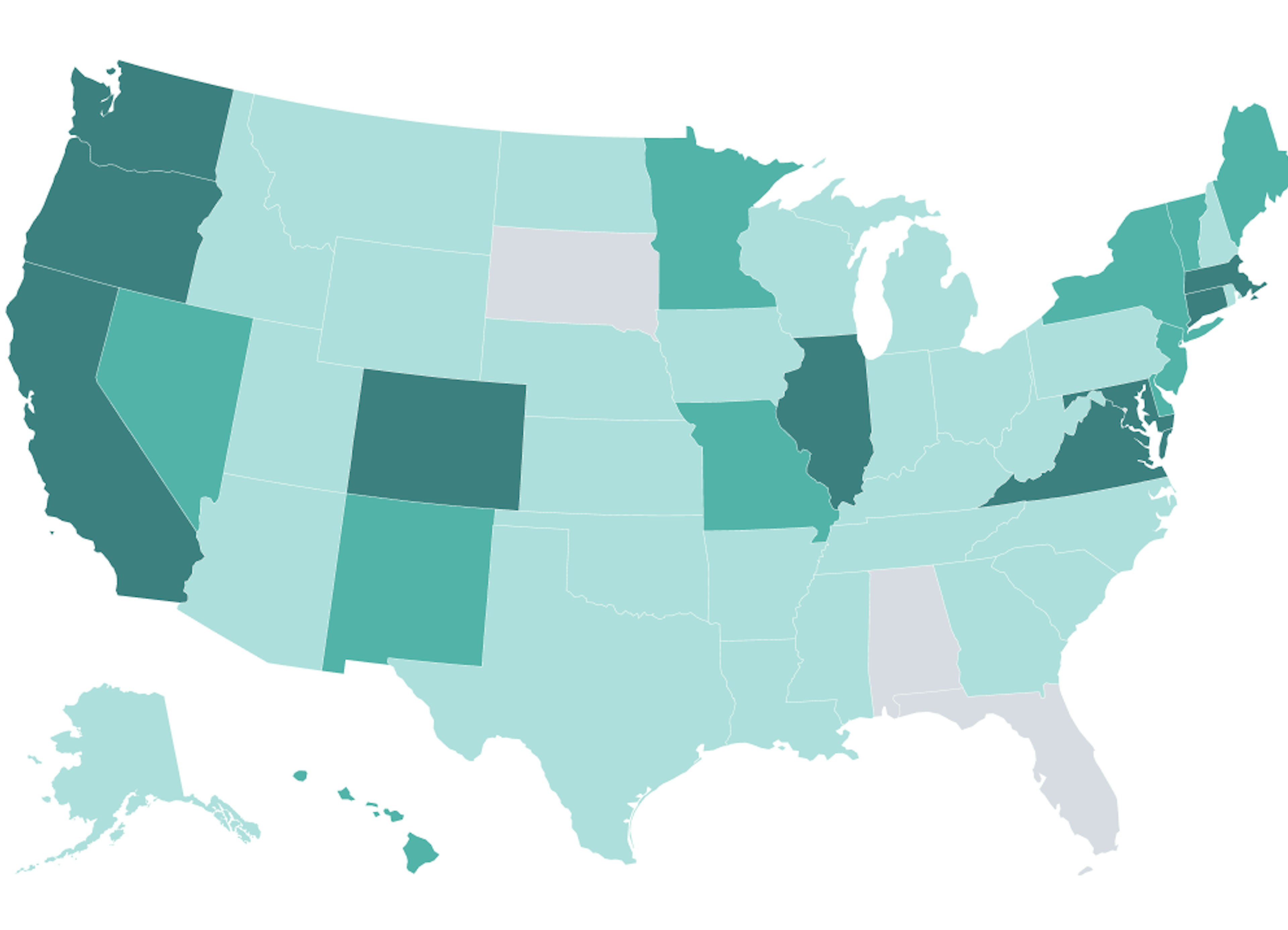Key Takeaways
Missouri introduced HB 1732 on 1/6/22, which would create a voluntary MEP for small employers
As introduced, the MEP is not mandatory and employers with 50 or fewer employees may participate
Missouri Workplace Retirement Savings Plan is set for implementation no later than 9/1/24
Missouri is in the top 25% of most affordable states in which to retire, and is gaining popularity as a retirement destination for seniors from across the country (it ranked in the top five states to retire in 2021, according to Bankrate). However, workers who spend their careers in the state may not get their dream retirement—or any retirement at all. That’s because 44% of Missouri private-sector workers ages 18 to 64 don’t have access to a workplace retirement plan.
To increase this retirement savings access, Rep. Michael O'Donnell (R-Oakville) introduced House Bill 1732 on January 6, 2022. The bill would create the Missouri Workplace Retirement Savings Plan, a voluntary, open, multiple-employer plan (MEP) for small employers. The goal behind the program is to provide more Missourians access to a retirement savings plan through their employer.
As introduced, the Missouri Workplace Retirement Savings Plan is a MEP, meaning that employees of different private-sector companies can join a single tax-qualified retirement plan. MEPs are designed to reduce risks and expenses to participating employers because the plan sponsor tends to be in charge of administrative and fiduciary roles. Here’s what else you need to know.
Overview of Missouri Workplace Retirement Savings Plan
In addition to establishing the Missouri Workplace Retirement Savings Plan, HB 1732 will create the Missouri Workplace Retirement Savings Board under the State Treasurer. The board will be responsible for designing, developing, and implementing the plan. Among these many other duties, the board is specifically tasked with:
Encouraging participation, saving, and sound investment practices
Hiring plan administrators and investment advisers
Minimizing cost to participants
Promoting the portability of benefits, including the ability to make tax-free rollovers or transfers to and from the plan
Selecting investment options that achieve maximum possible income replacement balanced with an appropriate level of risk, including tax-deferred and Roth IRA options
Creating an education outreach program to individuals and employers.
The plan is set for implementation no later than September 1, 2024. HB 1732 is currently before the House Financial Institutions Committee; we will keep tabs on plan developments and update this article with what we learn.
How Missouri’s multiple employer plan (MEP) is designed
As introduced in HB 1732, the Missouri Workplace Retirement Savings Plan MEP is not mandatory. Employers with 50 or fewer employees may participate. If a participating business hires additional workers in excess of 50, they can remain in the program for an additional five years.
If passed, initial automatic contribution rates will be set at 5%, but employees can change their contribution or opt out any time. The board may raise the automatic contribution rate or institute automatic annual escalation at its discretion.
Employers may be able to contribute their employees’ accounts under the plan, but would bear no responsibility or liability for workers’ decisions to opt in or out, the investment options provided by the board, or participants’ investment decisions.
The plan is designed to be easy to use for employers and to minimize costs for participants. While many of the details are still to be determined, the bill specifically references using existing employer and public infrastructure to facilitate contributions, record keeping, and outreach.
Potential impacts of the Missouri Workplace Retirement Savings Plan
Mandating employer participation in state-sponsored retirement plans provides more people access to workplace retirement plans. While we know that automatic enrollment and payroll deductions significantly boost retirement savings for participants who don’t opt out, less is known about the impact of voluntary programs.
We can look to Massachusetts for a glimpse of how well a MEP might perform in Missouri. Massachusetts’ CORE Plan is the only one of five state-mandated retirement plans currently in operation that’s classified as a voluntary MEP. It has proven to be an attractive option for eligible employers, however, it would be difficult to compare Missouri small businesses to the nonprofits the Massachusetts plan is designed to serve.
Although the MEP proposed for Missouri is limited to small businesses with no more than 50 employees, small businesses in the state are particularly lacking in workplace retirement savings options. Because workers in Missouri businesses with fewer than 100 employees are much less likely to have access to a plan (67%) than workers in larger businesses (30%), the Missouri Workplace Retirement Savings Plan would provide a sorely needed savings vehicle for many small business employees should their employers choose to participate.
Interestingly, the bill states an overall intent to encourage employers to adopt a tax-favorable retirement plan, whether through the MEP or by other means, which could potentially lead to greater adoption of workplace retirement plans regardless of whether eligible businesses opt for the MEP.
Which retirement plan is right for your Missouri business?
If your Missouri small business has fewer than 50 workers, the proposed MEP program could eventually have several options to suit your retirement plan needs. But it’s not your only choice.
While the plan is designed to be optional for employers, it’s important to note that access to an employer-sponsored retirement plan is the number one reason why small business employees start saving for retirement. So even if the MEP isn’t the right option for you, finding a viable alternative could help your workers retire more comfortably in their home state.
Human Interest can help small businesses find affordable, flexible 401(k) plans suited to their needs and budget. By syncing with more than 200 payroll providers, and lessening some of the burdens of recordkeeping and compliance, we can help reduce the manual work of plan administration—so you can focus on running your business. Click here to get started today.
Low-cost 401(k) with transparent pricing
Sign up for an affordable and easy-to-manage 401(k).
Article By
The Human Interest TeamWe believe that everyone deserves access to a secure financial future, which is why we make it easy to provide a 401(k) to your employees. Human Interest offers a low-cost 401(k) with automated administration, built-in investment education, and integration with leading payroll providers.


